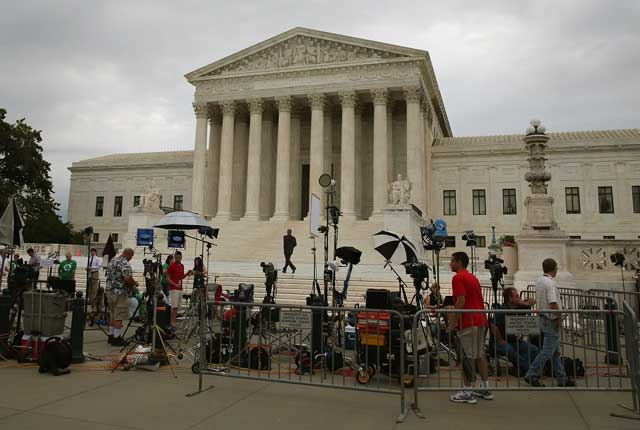Should an Illinois mom who receives Medicaid to care at home for a son with a rare genetic disorder be compelled to pay dues to SEIU, the union bargaining on behalf of home care workers in the state? In a 5-4 decision this morning with repercussions for African-Americans and women in particular, SCOTUS has ruled in Harris v. Quinn that "partial public employees" like Pamela Harris can’t be required to pay dues. When given the choice, many workers stop paying dues so this decision will limit a public sector union’s ability to organize–but it won’t end it.
The public sector is the leading source of (well paid) employment and upward mobility for African-Americans and women comprise nearly 60 percent of all government workers (think, teachers, nurses, home health aides, etc). Union membership has fallen dramatically since the early ’80s, down to 11 percent from 20 percent in 1983, according to the Bureau of Labor Statistics. But union membership remains strong in the public sector where workers (35 percent) are five times more likely to belong to a union than those in the private sector (6 percent).
For expert analysis on the decision and its implications, follow SCOTUSblog and OnLabor.
What do you think? Should Harris be compelled to pay dues to the union representing home care workers in Illinois?
